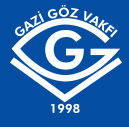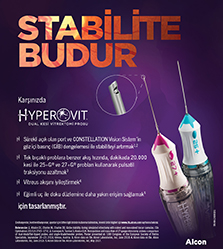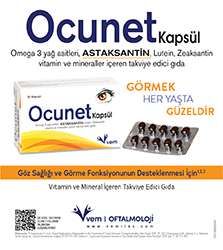2Gazi Üniversitesi Tıp Fakültesi, Göz Hastalıkları A.D:, Beşevler, Ankara, Doç. Dr.
3Gazi Üniversitesi Tıp Fakültesi, Göz Hastalıkları A.D:, Beşevler, Ankara, Prof. Dr. Purpose: To analyze the efficacy and complications of posterior subtenon triamcinolone injection (PSTT) for the treatment of uveitis.
Materials and Methods: The data from the medical records of the cases with non-infectious uveitis treated with PSTT injection were examined retrospectively. Efficacy of PSTT injection for vitritis, retinal vasculitis or cystoid macular edema (CME) and complications including intraocular pressure (IOP) elevation and cataract progression were evaluated. Efficacy of PSTT was defined as a decrease in vitreous haze for vitritis, 50% or more decrease in central foveal thickness in optical coherence tomographic measurement together with fundoscopic or angiographic improvement for CME and clinical or angiographic improvement in vascular leakage for vasculitis. Paired t-test and Wilcoxon test were performed for statistical analysis.
Results: A total of 50 eyes of 38 cases were included in this study. The mean follow-up time was 16.3 months (1-60). The mean visual acuity (VA) was 0.42 before the injections, and it significantly increased during 1st, 3rd, and 6th month follow-ups (p<0.05). Overall clinical efficacy was 78% in the first 3 months. The efficacy of the treatment at the 1st and the 3rd months were 97%-78% for vitritis, 77%- 73% for CME, and 64%-81% for vasculitis respectively. Significant IOP elevation (>21mmHg) was observed in 24%, and cataract progression in 22. 8% of the eyes.
Conclusion: PSTT treatment is an effective and safe method for controlling posterior segment inflammation of noninfectious uveitis. The most important advantage is being deprived of systemic side effects of steroids.
Keywords : Uveitis treatment, subtenon triamcinolone



